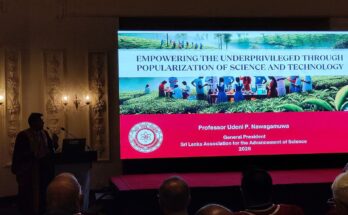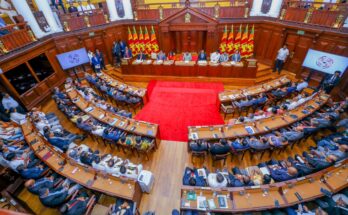Climate change and the science behind it is Simple and the consequences of the climate change are Serious but we are not too late as this is still Solvable. Professor A. Scott Denning, Monfort Professor of Atmospheric Science at Colorado State University, USA expressed this views during a public seminar organized by Dept. of Zoology and Environment Sciences, Faculty of Science, University of Colombo. His talk titled “The Three S’s of Climate Change: Simple. Serious. Solvable” was attended by University students, Intellectuals and many other who are interested in this Climate change and it’s effects.

Simple
The Science behind the Climate Change is pretty simple and easily understandable. The adverse effects of the climate change is mainly due to the increased amounts of CO2 and Water vapor in the atmosphere. These gasses are released in to the atmosphere by many natural and human activities, where human activities play a major role.
Serious
According to prof. Denning the effects of the climate change can be serious and scary. Those affects may come in many forms like adverse weather patterns including droughts and heavy rains, coastal flooding..etc. He further explained that CO2 levels in the atmosphere would be very hard to control once it reaches higher levels than usual. So the global warming would be irreversible and we should take every possible step to control Carbon emissions to the atmosphere.

Solvable
Even though the world has begun to experience the adverse effects of the climate change we are no too late too solve this issue, Prof Denning says. Specially a country like Sri Lanka which is still in the way towards a developed nation, should look in to make our infrastructure to preserve energy to the maximum possible limits. And also we should look more in to non carbon based sources to get our energy needs. Prof Dennings explained that the price of solar energy has drastically gone down compared to coal and other fossil fuel energy. So most of the countries have bigger chance to move towards greener energy sources in future.



